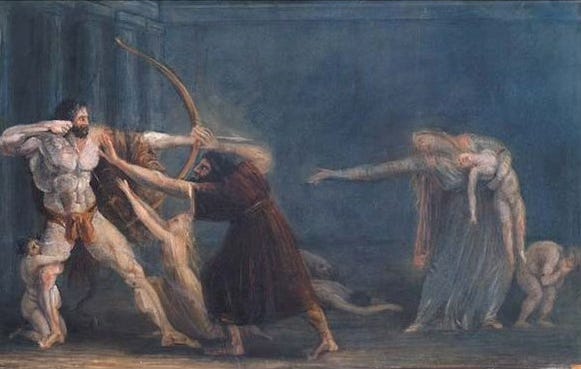This tragedy by Euripides was written in 420BC, 10 years after Children of Heracles. Historically, this is in the midst of the Peloponnesian War. Mythologically, it’s at the point of Heracles’ life where he is completing his 12th and final labor. While away, his family is in danger. He returns, neutralizes the danger, but becomes danger himself in the form of madness brought on by the gods. In this state, he kills his wife and children with the very bow that has brought victory in his life.
Awaking from this madness, Heracles is confronted with the most cruel situation—he must live out his days knowing he killed his family. He opts for suicide but is saved by an act of great kindness.
In considering the historical timeframe, this must have been sweet balm to soldiers returning from war who had experienced or were experiencing their own form of madness. What can save someone in that situation?
I love reading Thucydides’ Peloponnesian War alongside these tragedies and considering what was happening in and around Athens while these plays are being written and performed. It adds a fascinating element in the consideration of their content.















Share this post